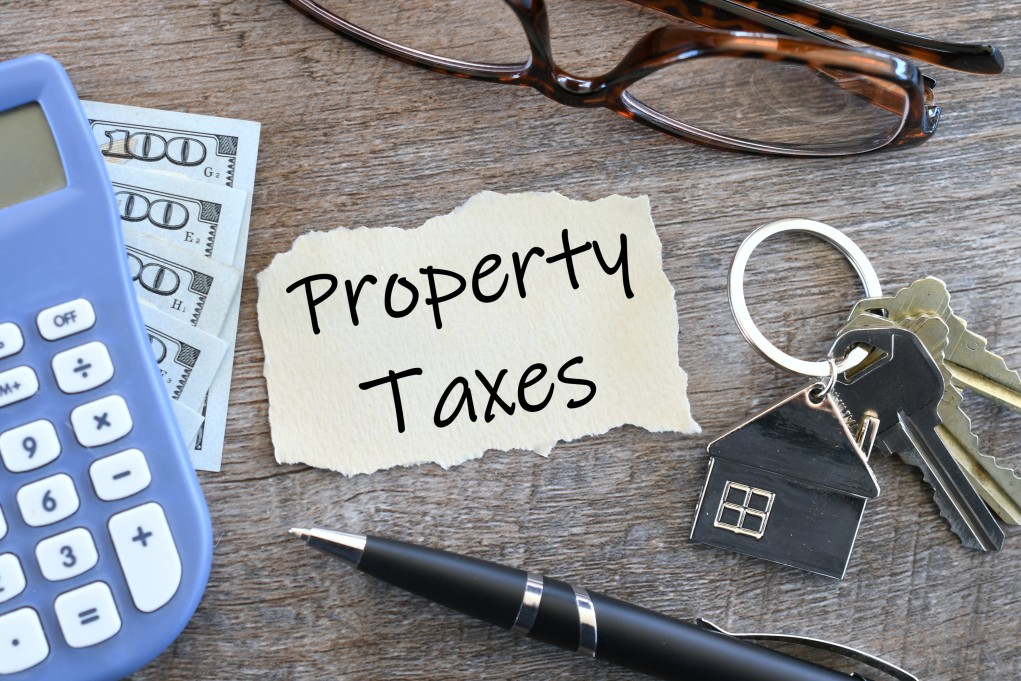Selling a house with a federal tax lien is possible. The law places a tax lien on a property to secure the payment of taxes, which can apply to both real and personal property with unpaid taxes.
When you don’t pay your taxes, the government has a lien on your property to protect its interest. The property is taken to satisfy the tax obligation by a levy.
The IRS has the authority to take, levy, and auction any real or personal property you own or have an interest in if you fail to pay or make arrangements to do so.
The possibility to sell your home even if the government has seized it remains high. For those who owe taxes, selling their home may be a viable option: Your mortgage lender and the government that has filed a tax lien could be paid if you sell your property for enough money.
To determine how much you owe in back taxes, you’ll first need to know the value of your property. In most cases, if your house or property is worth more than the taxes, and selling it will pay them in full, the sale will be approved.
Continue reading this article to delve deeper into Selling a House With a Federal Tax Lien.
As stated above, a lien is a legitimate claim put on a property. The lien claims ownership but does not take over. Tax liens might come from the federal government, or your bank can arrange a mortgage lien on your property.
A levy is the real seizure of property to pay a debt in full. If your state authorizes levies, it takes your property to pay a tax bill, a court judgment, child support, or alimony.

The federal government uses liens to compel income tax payments. However, your mortgage is a lien on your property, and there are times when they can be beneficial.
Having a lien on your home is an effective way for your mortgage lender to secure your property until the loan you took out to buy it is fully repaid.
Key Fact: Lienholders aren’t limited to real estate; in fact, personal property, commercial property, and other assets can all be subject to a lien.
Non-consensual liens can be created by either the lienor or the lienee. A non-consensual lien, like a judgment lien, is imposed without your consent. Your mortgage is an example of a consensual lien.
There is a wide range of liens to consider, and below we will explore each of them.
Liens on Federal (Income) Taxes
When you owe money to the federal government and haven’t paid it, the IRS puts a lien on your property.
It is now permissible for the IRS to seize your property if you don’t pay your taxes. If a company owes unpaid taxes, liens may be put on the individual or business’s assets. If you want to get the lien erased, you’ll have to pay both interest and penalties on the amount you owe.
A lien can be addressed in various ways, including paying off the obligation.
The Internal Revenue Code is what determines a person’s eligibility. When you get a discharge, you can sell your house to obtain money to pay off your debts.
The public notification of the Federal Tax Lien is removed when the lien is withdrawn. Lets the public know you are not competing with other creditors when it comes to the IRS for your assets.
Federal tax liens can be as frightening as the IRS, but various methods can help you to avoid liens.
Liens on property taxes

A property tax lien is a type of lien that you’ve probably already heard about after reading about income taxes.
Real property taxes fund public services like police, fire, and library departments in your municipality and county. Property tax liens are put on your property when a homeowner does pay their dues.
If you don’t pay municipal expenses like your sewer and water bill, you may end up with a lien on your home.
If you owe overdue taxes, you may also have to pay interest and penalties.
Top Tip: You can file for bankruptcy and have your debts discharged. You may also be able to work out a deal with the lien holder to settle your outstanding debts.
Judgment Liens
Judgment lien refers to the fact that a court has issued a judgment against a debtor for failing to pay their creditors. As previously stated, a judgment lien is a non-consensual form of a lien.
As long as you don’t object to this lien, the court will enforce it against the debtor. There is a court ruling after a creditor sues a debtor for repayment.
Another example of a judgment lien is when someone is injured in an accident, and you are sued for damages. If your insurance does not cover the damages, a judgment lien may be placed to ensure that you pay for them.
Taxes can be imposed through wage garnishment, property seizures, or liens on assets.
If a debtor fails to meet a contractual commitment, the creditor can enforce a judgment lien and seize the debtor’s real or personal property.
Individuals and corporations can be held responsible for the repayment of a lien. The creditor has access to assets ranging from the debtor’s business or real property to personal property such as cars, appliances, furniture, and other worthy belongings.
Remember: A lien can only be established on a specific sort of property if the state’s legislation permits it.
Selling a House with a Federal Tax Lien: A Practical Guide
It’s possible to go around the initial terms of a tax lien by disputing it or by negotiating around it.
Acquire and Present a Discharge Certificate
Request a discharge certificate from the IRS to remove a lien on your property. A certificate of clearance will allow you to sell your property and use the proceeds to pay off your debt. However, it will not completely remove your lien.
The certificate of discharge must be shown before the sale can be finalized. Once the monies from the closing have been sent to your creditor, the lien will be formally cleared. You’ll receive a letter from your creditor asserting that the lien has been removed.
Your home should be sold as-is.
Selling your home as-is is the best option, but bear in mind that simple repairs and modifications can increase its value.
Painting your entire house might cost you an additional month’s worth of interest and penalties. Due to fluctuations in the housing market, it may take some time until your home is sold.
Let go of the idea of refinishing your floors for the sake of expediency and sell your home as-is. Get your money fast so that you can get out of debt as soon as possible.
Don’t Pay the Liens You Don’t Have to Pay
Do not wait to register a challenge if you believe that your lien has been filed in error, most usually because it was meant to be filed in someone else’s name. If you’ve already paid it off, you may still find a lien on your credit report.
Tax professionals can help you plan ahead for this type of situation. In most cases, the IRS will not even consider your complaint unless a tax advisor is present to mediate. If your case necessitates legal aid, consider hiring a tax attorney to handle lien appeals and other legal issues.
Await the End of Your Lien.
Due to the risk of severe penalties, you should avoid attempting to delay the expiration of your lien. The previous paragraph said that liens could be refiled and that creditors usually do not wait for the lien to expire before collecting on it.
When they do, it’s usually because they have a relatively low debt load. If you’re waiting for your lien to expire, remember you’re gambling with the government and your finances. Use alternative methods to reduce the risk of severe repercussions while settling your lien.
Possibly Occurring Problems
To successfully sell your home and pay off your mortgage, you must be aware of the potential hazards that could jeopardize your sale.
Lien Debt Is More Expensive Than the Property.
Unless you have enough equity in your home to settle your tax obligation, you should first pay off enough of it to lessen your lien. Before you file for discharge, make sure to do this. The lien on your house won’t be reduced enough before you can sell it to pay it off.
There are few options left if you can’t pay off your debt with your house. No partial payments can be made with the property because the lien was filed to ensure that you are fully repaid. To avoid bankruptcy, you’ll need to lessen your lien enough to be able to sell your home.
Before filing for bankruptcy, be sure you know your alternatives. You will be unable to sell or auction your property if you file for bankruptcy because of the lien that will remain on it. However, you will be reimbursed for your debts by your creditors.
Finding of Liens

If you’re ashamed of your tax lien, it’s a bad idea to keep it a secret from the individuals helping you sell your house, whether it’s an attorney or a real estate agent.
A title search will reveal any outstanding tax liens on a property despite your best efforts to conceal outstanding liens. Selling a home with a federal tax lien can be difficult, so be honest with your real estate agent and/or attorney about your financial condition.
As a result, they may focus on lien-specific concerns and give the expertise needed to make the entire process more efficient.
Bear in mind: You can always seek assistance from a tax lien specialist, real estate agent, or lawyer.
Handle Your Tax Lien Right Away!
You don’t want debt to cling to you any longer, so you must make the difficult decision to separate yourself from your home. Financial freedom can be gained or lost by selling your house for cash. Without taking care of your lien now, you risk getting into much more difficulties in the future. Now is the time to go to our homepage and provide us with your residential address.
To put it briefly, “no.” In most cases, a tax lien won’t preclude you from purchasing a home unless the IRS is obliged to be the first lienholder on the property.
A tax lien will still exist on your real and personal property, and you will still be responsible for the total amount of your tax bill (as well as related interest and penalties). Subordinate your tax lien to a mortgage refinance, for example, and then use the money to pay off your tax lien.
Even though the IRS has more than 10 years to collect, the lien will expire after that period unless the IRS timely refiles it. Refiling of the tax lien by the IRS is considered a continuation of the original lien if it is done on time.
Legal action against unpaid taxes is serious business. The lien on your home or property indicates that you have not paid all of your federal or state income taxes. There is no immediate property confiscation with liens, but the next step is levies, which are serious business indeed.
Do Squatter Rights in Alabama apply? Squatter rights in Alabama generally are not recognized. However, adverse possession rules are respected.
It is unacceptable in this state for someone to claim the right to inhabit someone else's property falsely. To lawfully stay on the property, they must meet the standards of adverse possession.
To live in a property that has been foreclosed or abandoned without permission from the legitimate owner is illegal. An illegal occupant of land that does not belong to them is a squatter.
However, there are situations where squatting is permitted, although it is against the law. When squatters falsely claim property ownership, they are breaking the law. As long as they're not using bogus documents or statements, the landowner can take legal action against them.
Squatters frequently target abandoned buildings. In Alabama, the term "abandoned" refers to property taxes that have been unpaid for more than a year.
Each state area has its own unique set of rules and regulations, and in this article, we will be looking at Squatter Rights in Alabama.
While trespassing and squatting aren't the same things, they're often used interchangeably in the same context.
The key difference between the two is that trespassing is illegal, and squatting, on the other hand, is seen as more of a community issue. Legal action may be taken if a property owner can prove that the squatting party or parties are not welcome.
🔄Roundup: A trespasser will enter a property by causing damage, often by breaking a door or smashing a window which is why they are considered illegal. However, a squatter will access a property through an unlocked door or an already broken window.

Taking someone else's property without them knowing is a crime in Alabama. Laws legislated in the United States to protect land are referred to as "adverse possession." It was enacted for the benefit of the land, and it states that anyone who can use the land may register a claim if the current owner isn't using it.
There are many obstacles that squatters in Alabama face when acquiring property rights. There is a better chance for residents of Alabama than residents of other states to regain ownership of their property.
Alabama turns to "adverse possession" statutes to enforce its rights rather than relying on "squatters."
"Adverse possession" is a legally recognized concept that allows someone to claim ownership of someone else's property. In the past, examples of adverse possession included the continued use of a private road or drive and the development of underutilized land for farming purposes.
The law of adverse possession encourages those who are "adversely possessed" rather than the true landowner to use the ground to promote productive property use. This rule only applies if there are no other occupants on the property. The landlord, other tenants, or anyone else who isn't a tenant isn't allowed to share their possessions with them.
Following the state's statutory period, the land's ownership must always be maintained. According to the law, adverse possession can last three to twenty years.
Adverse possessors in many states have the option of extending their adverse possession period if the two professions are not separated by more than a year. Landowners under the majority age declared insane or incarcerated do not begin to run the statutory period.
There will be no delay in the statute of limitations if one or more of the conditions listed above is present during that time.
For an adverse possession claim to stand, squatters must have occupied the land for a set time. It takes at least 20 years of continuous occupancy for an Alabama squatter to be recognized as a legitimate claimant.
It's reduced to ten years if they have paid property taxes for the last decade. Many people take advantage of squatters ' rights to own a piece of property without paying rent or a mortgage.
When discussing adverse possession and squatters' rights, the term "color of title" is frequently used.
Squatters and trespassers have the legal right to occupy a piece of land. The color of the title can be affected by a claim of adverse possession. This could indicate that the property was not acquired in a "normal" manner, and as a result, they may be missing some of the required ownership documents.
The acquisition of a piece of real estate without the proper legal authority is possible. In this case, the squatter is entitled to the land they own. Only the portion of the property they have occupied is theirs in this case.

Before claiming adverse possession in Alabama, a squatter must meet the following conditions. Use the property per these guidelines:
Hostile and damaging occupation of genuine owner's property is required. Unauthorized entry into a property is not regarded as hostile. Once an owner's property interests have been threatened, they do not need to know about the occupation if it's detrimental to the owner's property interests.
🧠Remember: The term 'hostile' does not imply that the land was taken in an aggressive or violent matter but instead has another legal definition.
Three definitions of "hostile" are listed here:
A majority of the states in the United States adhere to this rule. Just trespassing on someone else's property, even if you are unaware of its ownership, constitutes "hostility.
It is well-known that trespassers intrude on private property without permission. Then they may have relied on incorrect or flawed paperwork in some way. In this case, the trespasser is unaware of the property's legal status.
According to this, the trespasser is present and acting as if they owned the property themselves. Provide proof of the landscaping and cleaning efforts on the property to demonstrate this.
The squatter or trespasser must make it clear that they are in control of the land to be deemed "open and notorious.". A trespassing investigation by a property owner can meet this standard even if the owner has reason to believe that someone is intruding.
The adverse possessor must have exclusive possession of the property to the exclusion of the legitimate owner, as defined by the "exclusive" possession condition.
They may, however, share ownership of the property with another person. In that circumstance, the property will be held in adverse possession by the two (or more) possessors. Everyone else is barred from accessing the land unless they pursue a claim of adverse possession.
The property must be either immovable or mobile. The nature of the possession must be visible, hostile, and uninterrupted over the period stipulated by the Limitation Act.
As stated, under Article 65 of the Limitation Act, adverse possession can not be declared quickly. The statute of limitations expiration, proof of adverse possession will be required. Because of this, unfavorable owners can use the property per its nature.
In some cases, these rules may not apply to all situations.
When tenants stay in a property after their lease has expired, they are known as "holdover tenants." If a landlord agrees to a person occupying their property, a holdover tenant must continue to pay rent at the same rate and terms.
Depending on the circumstances, the tenant may face legal consequences if the landlord orders them out of the property (or gives them "notice to quit").
🔑Key Fact: If tenants refuse to leave a property once the landlord has requested them to move out, they are unlawful detainers.
After receiving notice and being ordered to leave the property, a holdover tenant can no longer claim adverse possession. They are breaking the law by trespassing at this point.
Landlords can still collect rent from their tenants even if they don't want to leave their homes, and the tenant will hold Free-landlord status.
If a tenant knowingly occupies a landlord's property, the landlord can order the tenant to leave the property at any time, with or without notice.

By adverse occupation, squatters in Alabama are not required to show that they have paid their property taxes. If the property has been well maintained for at least 20 years, this is no longer necessary.
Those who have paid taxes for the past ten years are eligible for a ten-year suspension of their sentence. Squatters will have an easier time obtaining property ownership if they have this documentation.
❗Important: Your county will send a delinquency notice if property taxes are not paid. In this notice, you'll find out how much taxes you owe and the penalties that occurred, as well as a deadline to pay your overdue taxes.
In Alabama, removing squatters from a property is much easier than in other states. It's improbable that any legal issues will arise out of this situation.
Landowners and landlords can evict or reclassify illegal occupants as tenants. Squatters in Alabama are not required to follow a specific eviction procedure. If you want to evict them, do so as if they were tenants.
Legal and illegal activity are among the most common reasons for non-payment of rent. The landlord or landowner must issue an eviction notice to remove a squatter.
After receiving these notices, the squatters have seven days to leave the property, where they can decide to vacate or be evicted.
Squatter Rights in Alabama generally do not apply; however, the state does adhere to adverse possession legislation.
For a squatter seeking adverse possessions, they are legally required to meet a set of requirements such as being open, notorious, and exclusive.
Although squatters in Alabama are not required to pay property taxes, they may be eligible for a ten-year suspension off their original 20-year sentence if they pay taxes. Paying property taxes will allow squatters to obtain the property a lot easier if they prove they've paid taxes.
A landlord or property owner should always pay property taxes even if they are not occupying their property.
If you are unsure about turning off utilities on a squatter, check out more information in our helpful guide!
Particularly for first-time buyers, the stress of finding your ideal and perfect home is a hard enough task, but eventually after weeks and months of searching you are ready to put an offer into your dream home.
Then you find out that your offer has been rejected, and naturally all that’s floating through your head is Why, what did I do wrong?
Rejected offers happen frequently and it can cause homebuyers to feel disappointed and can crush the hope of being a homeowner.
However, just because your offer has been rejected doesn’t mean that you have to give up, it’s an opportunity to come back stronger.
The first step to doing this is to understand why your offer was rejected, and usually, it’s a reason involving the money, as well as discovering what options you have from that point onwards.
So, continue reading this blog post to delve deeper into answering the question: Why Was My Offer Rejected and How to Deal with a Rejected Offer?

Naturally, we all want to save some cash, especially when it comes to purchasing a home as it’s a huge investment. However, just by trying to pocket a little change could be the reason why your offer was rejected.
🔑 Key Fact: It’s important to recognize that in most states, sellers are not obligated to respond to an offer that is lower than their listed price, however an estate agent has to deliver the offer to the seller.
Although you may view your low offer as a strategic route to get the home of your dreams, the seller on the other hand can view your lowball offer as insulting and devaluing their home.
Also, if the property has just been listed, the seller may feel it’s too early to look at offers lower than their original asking price, especially if they have received offers that are around or exceed their asking price.
🧠 Bear in Mind: The seller has invested a lot of money, as well as time into building and decorating their home. So, naturally, they want a good deal and want to sell to someone who is going to appreciate the effort they put in.
Believe it or not, you can cause your offer to be rejected if your offer price was too high. Offers that drastically exceed the offer price sends red flags to your seller.
Generally, this is because a loan provider or mortgage lender will require an appraisal, meaning they will want to valuate the property to see if the loan amount matches up to the value of the house. If it doesn’t, the loan will be turned down which will potentially lead to a sale falling through.
However, an offer that exceeds the asking price will usually only be accepted if a buyer is willing to buy the property in cash.
👀 Delve Deeper: Are you considering buying a property and paying in cash? Take a look at our blog posts that explore the benefits of buying a property in cash
There will be multiple different buyers looking at the same house up for sale, and obviously, this is something that is out of each seller's control. You should always have a few homes in mind when you are searching for somewhere to live.
Another buyer's offer may simply be better than another home buyer, for instance, it may have fewer contingencies, or it may just list better terms than what you’re able to provide.
🔥 Hot Tip: If you find your offer is declined because the seller accepted a better offer, you should arrange a meeting with your real estate agent to discuss what changes you can make next time to make a stronger offer.
Your hired agent should get in contact with the listing agent to find out if there are any underlying specific requirements that you need to reach.
📝Key Information: Some listing agents will include hints under the agent's remarks section of the Multiple Listing Service- MLS.
Any concerns that you or your agent have should be written into your offer. If your seller requires a long escrow you may be able to offer longer closing date, or you may be able to speed up the closing process if a long escrow is not required.
If you want to delve deeper into the closing process, from the view of either a seller or the buyer, take a look at our blog post.
Other simple requirements may be missed, for example, a seller may want a pre-approval letter from your lender. Most sellers will request a letter; naturally, they will want some proof and assurance that you have been accepted for financing.
💡Extra Tip: Pre-approval loans can also benefit a buyer. It will provide you with an accurate idea of your budget for a property- that way you won’t look at properties or make offers on properties that do not fit inside your price range.
Furthermore, a seller may want a buyer to make an earnest money deposit. Look out for hints as some of these parameters will not be spelled out.
Variable Commission Structure or Dual-Rate Commission Structure is when a listing company sets up an agreement stating that if the seller's listing agent also ends up working with the buyer, then the agent will lower their commission as they’re earning from both the seller and buyer.
Typically, a listing agent will charge the traditional real estate commission figure, but they may agree to lower the percentage of commission if they can represent the two sides of the transaction. This is commonly referred to as variable rate.
Again, talk to your agent and check through the MLS to figure out if the commission is variable. If it is, the agent may be willing to match the terms for you to get the house.

Another common reason to consider when questioning why was my offer rejected- is if you raise a load of contingencies.
Contingencies raise alarms for sellers as it displays some sort of hesitancy and wariness. Having too many ‘what-if’ clauses within your written agreement are clearly to safeguard yourself as the buyer from any unexpected information that arises through the process, but always consider what will be going through the seller's head.
Before you write down each contingency be sure that is completely necessary before you send off your finalized purchase offer.
The reasons for your offer being rejected sometimes has nothing to do with your offer- and it could be a personal reason. For instance, the seller may believe that you are not a suitable fit for their home, maybe it holds some form of sentimental value to them.
In multiple-offer situations, it will reflect poorly on you as the buyer, if your agent irritates the seller's agent. Sellers are likely to choose a buyer whom their agent suggests.
🚩Be Aware: A listing agent may present two offers of the same value to the seller, and the listing agent can say I prefer ‘buyer one’s agent professionalism over buyer two’s agent’.
If your offer is rejected, it leaves you with two options:
If you choose to put in a new offer for the property, it's paramount that you spend time analyzing your previous offer letter. Did you put forward an offer that was too low or high or did you raise too many contingencies that scared your seller, or was it something else?
Understanding where you could have potentially gone wrong is the first and most important step an individual can take to gather some idea as to why the letter was rejected.
After you’ve determined the possible reasons, you should figure out how you can change those elements in your letter.
Contemplate asking yourself a few questions such as:
Once you’ve asked yourself the questions below, it's now time to take a look at your original letter and make the appropriate adjustments.
🧠Remember: Always be realistic, do not go over the top. You have to adhere to the information you stated in your offer letter.
You could go the extra mile and add an anecdotal atter explaining why you believe you are the perfect owner for their home. Think about adding a preapproval letter, if you are seeking a loan or mortgage to buy the property, this will provide a sense of security for the seller- the last thing they want is fallen through offers.
These tips are helpful, but they are not guaranteed to change the rejected offer to one that’s accepted.
Offers can sometimes be rejected and the seller can propose a counteroffer. If this is the case, you should go over the new offer with your agent to figure out if the new terms are suitable for you.
If you find that the offer is unsuitable, then you can move on from the offer and continue your search elsewhere, or you can continue to negotiate with the seller to come to a compromise that works for both parties.
Stay in contact with your estate agent to make sure you are updated on all changes to your contract.
Naturally, any homebuyer will feel disheartened if their offer is rejected, as the house you loved is slipping through your fingers, but always remember there is more than one house up for sale.
Rejection happens frequently in competitive markets, and it’s just part of the journey of finding a new home.
There are several reasons why an offer can be rejected, from lowball offers, contingencies to personal reasons.
A buyer needs to reflect on what mistakes they could have made in their offer letters for you to make suitable changes for future offers.
We have laid out some tips which can help you to deal with a rejected offer, as well as how to approach counter offers, however, keep in mind that these tips are not certain to alter the seller's decision, but they can be helpful.
But follow these three steps after your rejected offer and you’ll only come back stronger: